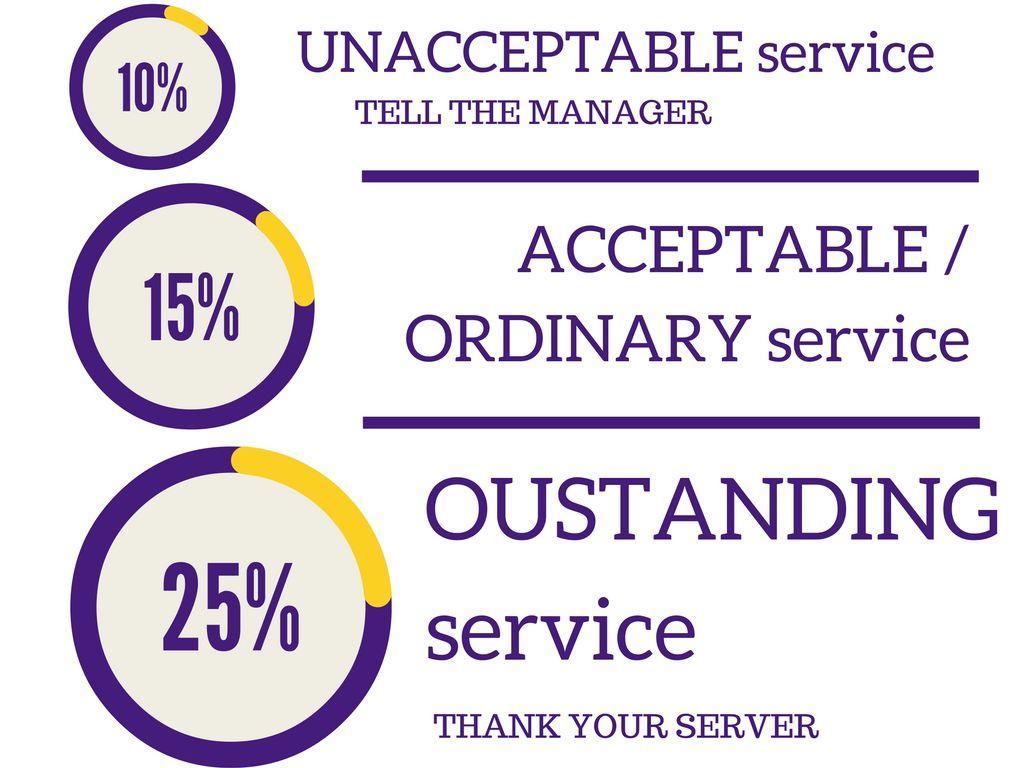Working in a restaurant has taught me a number of things: how to change toilet paper in bathrooms, grind burgers from scratch and keep smiling when the difficult table — who was there for three hours — doesn’t tip.
I’ve spent the last few months of my life asking myself the same question every day: Why don’t people tip? It’s a simple question. Yet, when I ask Google, somehow the only search results that pop up are articles persuading people to stand up against tipping culture and stop tipping altogether. Let me tell you who you’re really screwing over.
In most states, including Louisiana, servers get paid $2.13 an hour. It’s called the tipping wage. It’s allowed to be below minimum wage to account for the fact that servers are meant to make most of their wages from tips. That means every table, every person and every tip counts.
Most people who work in the service industry are not doing it because it’s a fun job. Especially for a college student or full-time server trying to pay bills, serving is hard work with unrecognized value. Specifically in the South, eating in restaurants and expecting hospitality with your food is a principle aspect of our culture. Servers, like anyone else, work hard at their jobs, which often include labor-intensive work in addition to unwaveringly maintaining a sweet, engaging demeanor for hours at a time.
I never fully realized the importance of tipping until I started working in the service industry. My coworkers often work nine or 10 hour shifts and only make $30 to $40 in tips at the end of the night, and it’s simply heartbreaking.
I know one girl who has a $500 rent payment due at the end of the week, and she’s been eating microwaveable chicken nuggets for the past two weeks because she can’t afford anything else. Another co-worker is struggling to buy a car so she can stop walking to work, but is living paycheck to paycheck. These are things that every consumer should keep in mind: taking a stand against tipping means screwing over real people with real bills.
Now, you may be thinking, “That’s not my problem, the restaurant should be paying the servers more.” Except that the federal labor law states that the minimum wage for tipped workers is mandated at $2.13 an hour. If a server does not make enough tips to equal the regular $7.25 minimum wage, then they will be compensated. Sounds fair enough, until you realize that not all restaurants do this.
The purpose of being a server is to provide customers with great service, and they are expected to tip you in return. If not, then why would anyone choose to be a server? Why not be a hostess or a cook and make a decent hourly wage? Similarly, if you don’t want to tip, why go out to eat and have someone wait on you hand and foot instead of making your own food at home?
What should be understood is that having money to pay for the bill is equally as important as having money to pay for a tip. If you only have money to pay for the food, then you don’t have enough money to eat out.
Some people tip based on their evaluation of the server instead of tipping based on a percentage of the bill. The problem arises when your evaluation hinges on things that are not the server’s fault. Your server is not purposely holding your food hostage in the kitchen when it takes too long. Most likely, they’re yelling at the cooks and fighting for your food to come out because they know that the longer the food takes, the less likely they are to get a sustainable tip. Your server is not responsible for catering to your individual taste palette when you don’t like your food, either. Chances are, you ordered something you shouldn’t have, or you’re in a restaurant that doesn’t serve food you like. You chose the restaurant. You chose the food. So why shoot the messenger?
Working in the service industry can be demeaning and frustrating, especially because when you depend on tips as your income, you’re not allowed to react to rude customers. You have to develop a thick skin and constantly uphold a pleasant attitude. It’s not an easy task, but it should be worth it.
It’s hard to see your managers getting paid large sums of money and driving expensive cars while you struggle to make people understand why you deserve the extra five dollars in tips.
If you are one of those people who can’t — or won’t — understand the value of your server, here’s a gracious tip from me to you: next time, stay at home for dinner.
Anjana Nair is an 18-year-old international studies sophomore from Baton Rouge, Louisiana.
Opinion: Tipping necessary to account for service industry wages
By Anjana Nair
November 1, 2016






